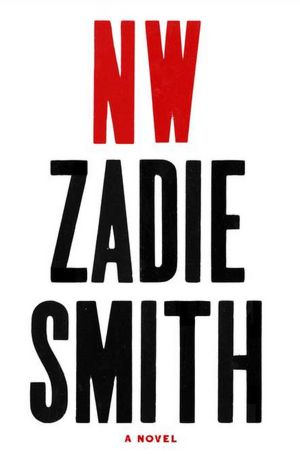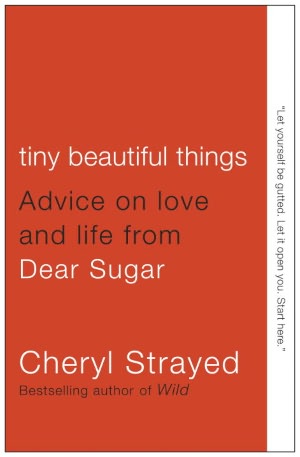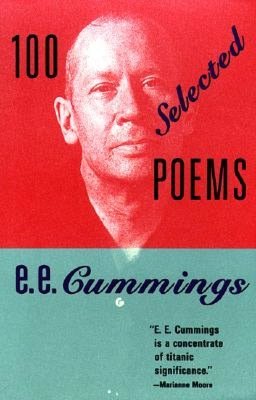By Natalie Friedman
Strange thoughts visited me in the days following my grandmother’s funeral. For example: while driving to my son’s preschool, the car windows open to the fine spring air, my radio tuned to an oldies station playing Marvin Gaye, I thought: “My grandmother never heard Marvin Gaye in all of her ninety-five years.”
My grandmother never listened to the radio. She never owned a record collection; I doubt she knew what a CD was. The lack of music in her life was tied up with other lacks and other losses, and those are what made me cry in my car as I turned up the radio and slowed down to circle the parking lot a few times.
I grieved for my grandmother in my own private way after she died, and this included making mental lists of all the things she had never done. It was the inverse of what most obituaries are supposed to do: rather than celebrate achievements, I was reckoning the gaps and spaces and silences and had-nots. My grandmother had never driven a car. My grandmother had never been to the top of the Empire State Building or the tip of Statue of Liberty’s lamp. My grandmother had never been to high school or college.
There were, of course, many things that my grandmother had done, things I have never done and may never be able to do. She had baled hay and milked cows and planted vegetable gardens. She had attended several births. She had seen her eldest brother return from World War I covered in lice and raving mad. She had nursed a sick mother and had buried her in a too-early grave. She had been taken to a ghetto and then to three concentration camps. She had walked out of them all alive, supported by no one. She had returned to her hometown, to a place from which nearly all her relatives had disappeared, and she rebuilt a home. She bribed a long line of greedy men to spring her husband from a Soviet gulag. She buried that husband in a too-early grave. She had crossed an ocean with an only daughter, at the age of fifty-three, to start a new life in America. She had worked in a factory, sewing neckties. She had crocheted over two hundred and fifty lace doilies, curtains, and decorative scarves, and had baked more than a thousand cakes from recipes that she kept filed in her brain.
But despite these facts, I felt that my grandmother’s life had been thwarted, unfullfilled, stunted. Perhaps it was arrogant of me to think so, I who had been cosseted by my comfortable American life, I who feel it my due and my right to have any kind of life I want, to be happy. My grandmother did not have the gift of happiness---she was a depressive her entire life, and I often wondered if she would have been depressed even if life would have treated her more gently. Or maybe life would have treated her more gently if she had been less depressed. She used to say that God smiles at those who smile at God, but she seemed never to have had the ability to smile.
I think that she was unhappy partly because of temperament, and partly because she had been born in a particular place and moment in history. A traditional Jewish household high in the Carpathian mountains was not fertile ground for cultivating female happiness or achievement. My grandmother used to say that she was a very good student in school, so good that her teacher suggested she might be sent to another city to study at the girls’ gymnasium. Her father, my great-grandfather, told the teacher that a girl only needed to know how to put the right shoe on the right foot.
My grandmother was able to summon up her father’s exact words nearly eighty years after he had uttered them, and she repeated them to me and my sister with the frequency of those who remember and do not forgive.
So she had only what amounted to a middle school education, and yet she was one of the most brilliant people I have ever met. She spoke several languages. She could do mental math with lightening speed. She knew all the names of all the people who had lived in her village, and could trace their family histories almost as far back as her own. She remembered the exact moment when she happened to hear, over a contraband radio, that the Russian army was advancing on the Nazis in April 1945. And she remembered that the Scotsmen who marched into Bergen Belsen with the British army to liberate her and the other surviving Jews were playing bagpipes and wearing kilts.
My grandma’s fine skill at observation and her attention to detail filled her brain and helped push out some of the pain she carried around. It’s not for nothing that she was a talented craftswoman, able to knit and crochet and sew. She focused on the small things. It was only when she wasn’t busy with her hands or baking some exquisite cake that she talked ceaselessly about the past. When I was old enough to sit with her at her tiny tea table and listen, then she relaxed her hold on the small necessaries that kept her going. The sad, ugly truths came pouring out, and they were ornately detailed, too; but after a while, she would turn to me and say, “How about a tea? With lemon and sugar? I’ll fix it for you.” And out would come a delicate porcelain cup, a small silver spoon, a pretty napkin, a fragrant slice of homemade cake that melted on the tongue---lovely weapons against ugliness.
Her many talents, her skillful hands, her way with words, her capacious mind---had she been born in a different time or place, she could have been anything she wanted. She could have used her great mind every day in the ways she wanted to use it. But even that is a fantasy: how we use our minds isn’t always up to us, and that painful irony was made very clear to me as I watched my grandmother slowly lose her grasp on the details and particulars, until one day it even lost hold of the things like who her grandchildren were or where she was living.
During the last two weeks of her life, when she was barely responsive, my sister and I talked about the possibility of her death and what her funeral would be like. We knew it would conform to the strictest of Jewish Orthodox standards, because that was how she had been raised. Although women are forbidden from public speaking before a mixed-sex audience in that tradition, we somehow imagined that we would give a eulogy for her. My sister had some touching anecdotes she wanted to share, and I wanted to talk about how my grandmother had been a true survivor, a tougher-than-nails scrapper. We planned and we revised and then we laughed and said, “She’ll pull through; she’ll be out of the hospital and back to her old tricks soon.” And then she died, and the night of her death, the rabbi called our mother and asked her for details of my grandmother’s life so that he could write his eulogy, and I began to see that my sister and I would be silent at that funeral.
When the kindly people at the funeral home asked us if we would like to take a last look at our grandmother, and they lifted the lid of her coffin, and we saw her lying there looking small and pale, her mouth, without dentures, puckering inward as if she had just tasted a lemon, I wanted to shout, “THIS IS NOT OUR GRANDMOTHER! This is not my indefatigable, determined, storytelling, memory-rich grandmother!” And I wanted to stand up where the rabbi was standing, and shout out my eulogy to the gathered guests, to tell them that they had no idea what reserves of strength this woman had had; that she had been a difficult, pained, tragic woman who had never been given the opportunity to flourish, but who had nevertheless loved us with a fierce and unwavering passion born out of the deepest, deepest fear of loss, the deepest, deepest hunger for life.
I guess this is my eulogy, this flimsy essay. It will have to do; after all, how do we ever capture, in words, the essence of a person? The complexities of a woman’s life? How many grandmothers lie in their graves with a booming silence all around them, the silence of no one knowing how to tell their stories? And each story is perfect, delicate, ornate, like a dainty teacup, a scrap of lace, a sweet pastry, a song by Marvin Gaye.
Original image by Wrestling Entropy on Flickr




























